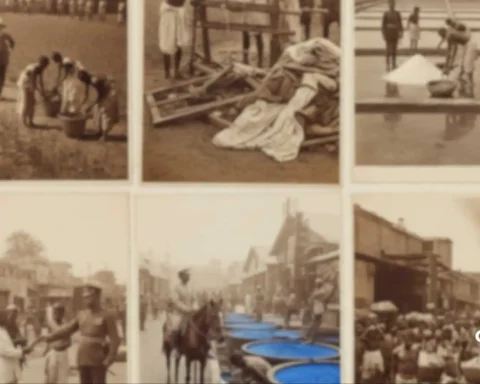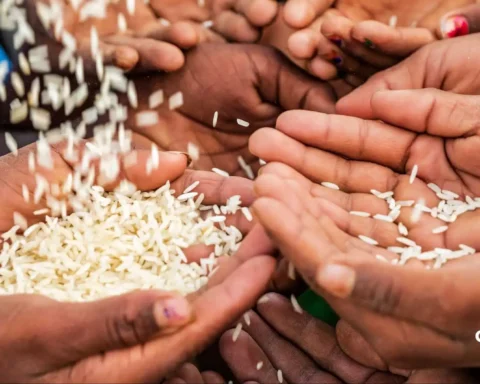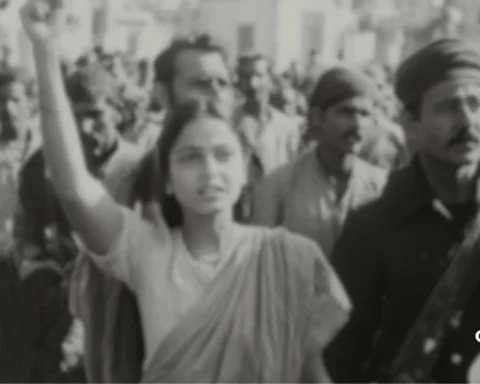An island nation in the continent of Africa, Mauritius is known as the ‘Little India’ of the southwest Indian Ocean. An ethnically heterogeneous nation, Mauritius has managed to establish itself as a democracy since its independence in the late 1960s, which is no small feat in such a country. After the abolition of slavery in 1833, Mauritian plantation owners and sugar oligarchs resorted to indentured labourers of Indian origin to work in their fields.
A large part of these Indian indentured labourers came from the state of Bihar in the 19th and early 20th centuries under the British indenture system. Leaving their homelands in search of better opportunities, they faced immense hardships, including harsh working conditions and cultural alienation. However, today, the Bihari Mauritians are not only a vital part of the country’s multicultural identity but also hold positions of influence across various sectors.
Table of Contents
Indentured Labor and Early Struggles in the Sugarcane Plantations
The migration of Bihari people to Mauritius began in the 1830s when the British sought laborers to replace enslaved Africans on sugar plantations. Though presented as a contractual work arrangement, the indenture system often subjected laborers to exploitative conditions, low wages, and poor living standards. Amitav Ghosh, a renowned Indian writer, has a novel called Sea of Poppies, which depicts the plight of these impoverished Bihari migrants who undertook a journey to distant colonies of the empire such as Mauritius.
Mohit Ramgoolam, the grandfather of Navichandra Ramgoolam, the current prime minister of Mauritius, was one of the hundreds of laborers from villages across Bihar forcibly taken by the British to work in the sugarcane plantations in 1871.
The Bihari Mauritians are descendants of predominantly Bhojpuri-speaking migrants of the Indian community who moved to Mauritius. They majorly originated from the Gaya, Chhapra, Bhojpur, Gopalganj, and East and West Champaran districts. After slavery was abolished, Mauritius needed labourers with the know-how of sugar production to bring its weakening industry back to life. Bihar, a sugar-producing province, was thence brought to the attention of the Mauritius Government, where there was a plenitude of unemployed dwellers.
The indenture system required them to enter into five-year contracts with their employers. They were sometimes fooled into signing these agreements. Corrupt agents would take them to ports under the pretence of offering them an easy job just to ship them off to a faraway alien land. During the five years, they could neither change masters nor demand higher wages despite the rise in prices. Their employers provided them with free quarters and medical facilities.

How Bihari Mauritians Shaped the History and Identity of Mauritius
One of the most striking aspects of the journey of the Bihari Mauritians was their ability to preserve cultural and religious traditions. Bhojpuri, a dialect from Bihar, became a common language among the Indian community in Mauritius. Temples, folk songs, and festivals like Chhath Puja were kept alive, creating a sense of identity among them. This cultural continuity helped them shape the identity of Mauritius while maintaining their unique heritage as well.
The influence of Bihari Mauritians on the social, political, and cultural history of Mauritius is profound. They contributed to the economic growth of the country by tirelessly working in the sugarcane plantations, which were the backbone of the colonial economy.
Politically, the Indo-Mauritian community dominates the parliamentary landscape through its majority on the electoral platform. All presidents except Karl Offmann and all prime ministers except Paul Berenger have been members of this community. The first Prime Minister of the country, Sir Seewoosagur Ramgoolam, who was instrumental in securing the nation’s independence in 1968, was of Bihari descent.
Political and Cultural Influence in Contemporary Times
“Bihar will lend all possible help to Mauritians to trace their roots,” said the chief minister of Bihar, Nitish Kumar, in the presence of visiting Mauritius Prime Minister Navinchandra Ramgoolam. The Mauritius government has initiated a move called “Trace your roots” to help the people of Bihari descent in Mauritius trace their cultural roots and ancestral villages in Bihar.
The “Bihar Roots Foundation” is a special cultural cell set up in Mauritius to strengthen the socio-cultural and economic ties between the Bihari Mauritians and their origins by connecting them to the land of their ancestors and preserving the ancestral language, Bhojpuri. The Bihar government will also soon set up an information centre that would have all the details of Bihar-origin nationals of Mauritius and their ancestors, along with their present-day descendants.
Indian Prime Minister Narendra Modi recently received a warm welcome in Mauritius, where the island honored him through a traditional Bihari cultural performance known as Geet Gawai. In 2016, UNESCO recognized Geet Gawai as part of the Intangible Cultural Heritage of Humanity. It is a Bhojpuri musical tradition that blends songs, prayers, and dance and serves as a medium of cultural expression among the Indian diaspora in Mauritius.
Conclusion
The journey of Bihari Mauritians, from indentured labourers to influential figures in Mauritius, is a testament to their resilience, adaptability, and cultural pride. Despite facing adversities, they carved a distinct place for themselves, contributing to the nation’s economic, political, and cultural fabric.
Today, their legacy is reflected in Mauritius’ diversity, where Bihari descendants continue to thrive while honoring their ancestral roots. Their story serves as a reminder of how determination and hard work can transform a life of hardships into a successful one, shaping the history of a nation.

FAQs
How many Bihari are in Mauritius?
Goorooduth Chuttoo, the President of the Bihari Roots Foundation, has said that nearly 70% of Mauritius’s population, out of a total of approximately 1.3 million, is of Bihari origin.
What is the caste of the Mauritians?
Mauritians do not have a singular caste, as the population is ethnically diverse, consisting mainly of Indo-Mauritians, Creoles, Sino-Mauritians, and Franco-Mauritians. While there may be some prevalence of caste distinctions, they are not as rigid as they are in India.
Which country has the most Bihari?
India has the largest population of Biharis, as Bihar is a state within the country. Nepal and Mauritius have significant Bihari communities outside India due to historical migration and indentured labor.









